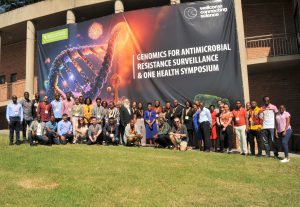Professor Chris Beyrer, President of the International AIDS Society and International Chair of AIDS 2016;
Dr Olive Shisana, CEO of the Human Sciences Research Council and Local Co-Chair of AIDS 2016;
Dr Brian Brink, Chief Medical Officer at Anglo American;
Ladies and Gentlemen;
It is a great honour for South Africa to host the 21st International AIDS Conference in Durban in July 2016.
This will be the second time that South Africa and the city of Durban host this conference, having hosted the event in 2000.
The conference, commonly known as AIDS 2016, is organised by the International AIDS Society, the world’s leading independent association of HIV and AIDS health professionals, together with its partners from the UN family, the South African government and international civil society organisations.
The return of the International AIDS Conference to Durban is highly significant for a number of reasons.
The 2000 conference was pivotal in focusing the world’s attention on the impact of HIV in Sub-Saharan Africa, fundamentally changing the course of the epidemic on the continent.
It is worth recalling what former President Nelson Mandela said in his closing address to the conference:
“Let us not equivocate: a tragedy of unprecedented proportions is unfolding in Africa. AIDS today in Africa is claiming more lives than the sum total of all wars, famines and floods, and the ravages of such deadly diseases as malaria. It is devastating families and communities, overwhelming and depleting health care services; and robbing schools of both students and teachers.”
A decade and a half later, thanks in large measure to the deliberations at that conference and the unparalleled response of the global health community, we have made much progress in tackling the epidemic in Africa and across the world.
But although we can claim many achievements, we cannot yet claim success.
Several countries on the continent have implemented massive treatment and prevention programmes that have had a marked impact on HIV incidence, life expectancy and maternal and infant mortality.
South Africa, with the highest number of people living with HIV in the world, has rolled out the world’s largest treatment programme, with over 2.7 million people initiated on antiretrovirals. .
Though we have made progress in many areas, we are still concerned about the stubbornly high numbers of new infections, the challenges we face in ensuring that those who are on treatment are supported to continue taking their medication and that stigma continues to undermine the impact of our programmes.
As we prepare for AIDS 2016, we will intensify our efforts to address these challenges.
We are determined that by the time we meet again in Durban, we will be able to report significant progress on all these fronts.
If we are to achieve the objectives articulated at AIDS 2014 in Melbourne, Australia earlier this year, we need to ensure that the response to AIDS remains prominent in the post-2015 sustainable development framework. We need to ensure that the international community continues to affirm the inextricable link between development and health.
In our quest for social justice and equity, we need to ensure that the development community, G8 and other global health platforms continue the focus on ensuring universal coverage.
There is a need for a sustained collaboration between various sectors of society. We need to strengthen the social compacts that have been developed over the course of many years.
In this context, I wish to commend the South African private sector for the initiative they have taken to combat the epidemic.
I wish to commend all our partners in the SA National AIDS Council, for the contribution they continue to make individually and collectively.
Through collaboration and coordination, through learning from each other, through engaging with each other, we will enhance our ability to bring the epidemic to an end.
I thank you.
ISSUED BY THE PRESIDENCY

Malaria Can’t Be Beaten Without Political Will And More Funding
Today, 94% of the world’s 249 million malaria cases are in Africa. Children under



